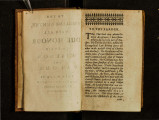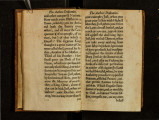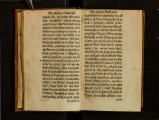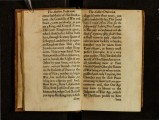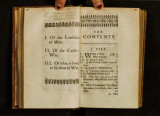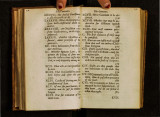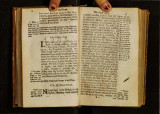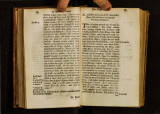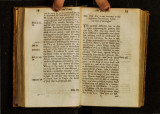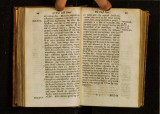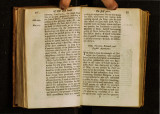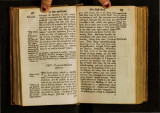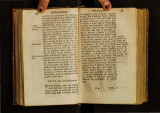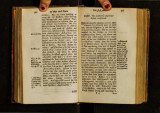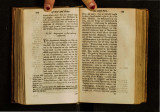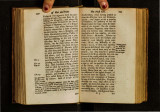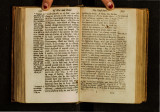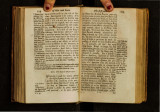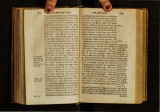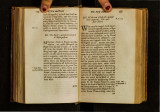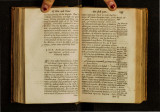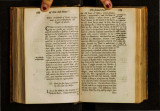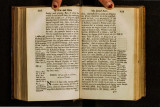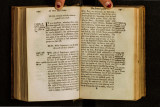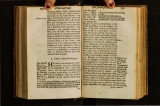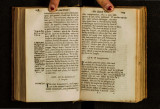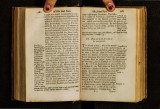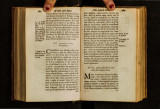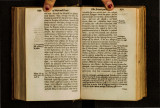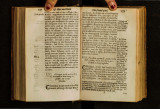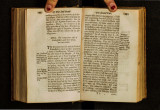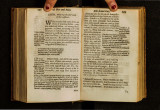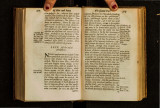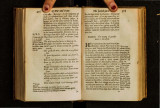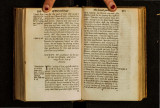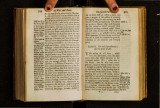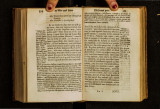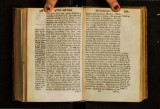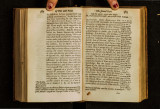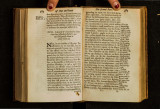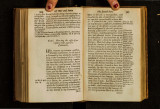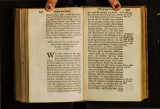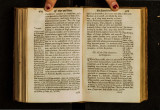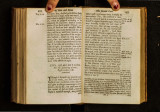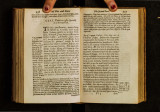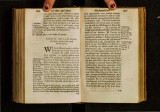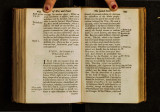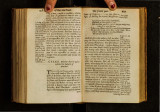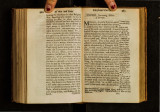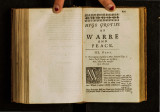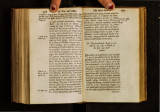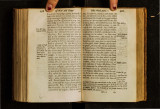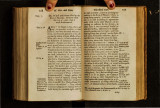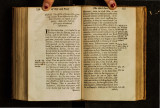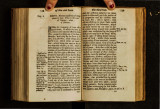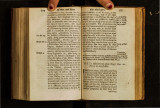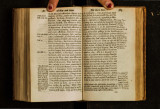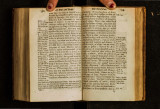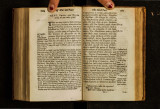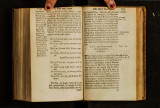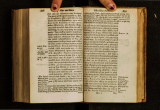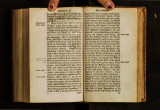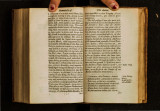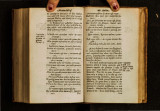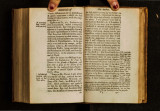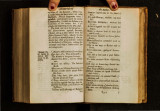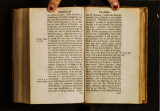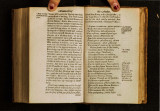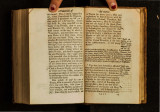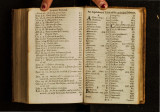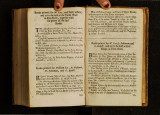| OCR Text |
Show . of W~tr ;~nil PtAct d d B. fides the benefit of this. obligation e. e ' · i h h was common to aU Natlo~s, . ~ t ~t~. ey h' h were one time gneve wtt 1t , :n~~her time might be ~afcd by the ~arne. Moreover,that this cu£lome was rece!V~d, a~pears not only o~t of full. wars, wht~h N:~otions wage agat_n!l Nat1ons (for ~n thefe what is oblerved may be ieen m * PoputiA pri{- the f;rms of denumiation *, and in the corum Latino- propoial *, and the decree '* it .felf;) but rum' homini- alfo where matters are not cctme to that b.ufq; pri[cu ' h · d f L4ti11u btllum fulnefs of war, yet t ere ts nee o a c.er-indico faciD·fj· tain violent execution of righ.t , that IS 1 Liv. I. •· imperfeCt war , we fee the lame to be "'V'etlt~t?Jube- ~ d t Arrejilaus of o1d, faid to Pharna· rent Ph•l•PPtJ u e · . 6 . f h K' · f P ji * Rtgi Macedoni· ba:z:..us, a iubJeCt o t e mg o er ta , bufq; qt1i[ub We , 0 Pharnaba:z:..us, -a?herJ we w~re the regnoej.ns e.f[mt King 1 friends c.trried our {elv~s bke bl'tbl! tl-, md"'· Jr.,r t.e n ds t o"""" 'ar u1 s ."..' LL hi 1 , and now bern. .IT, be· ,. 1 Po;r:itU Ro- come his enemies we carry o~r [elves like Thttnll~ cum po- enemies. wherefore' feeing you wtll be one puJo Hc~munJa. of the thing.r that au His ,we do JUJf!y opltJ, ho11nnJbu(q; p.r/~: him in you. fl errnuruittlld Jt · fJeJlum juf!it; . . n. • T ·. & alibi : Gel!. l. 16. c. 4· quod ex Ctn~IO .eu. tn re ~~ ~~an. a!,bi noau fit We q:,iqueintra pr.efid~tteJtU fun~. ~~v. !tb. 3h8. & ~ • t A prudcnr'man Nicol:tus Damafcettus dt{bngudher hwars. rom · l 1 fh thn Herod tow om tr WlS thcfe pignor2t .ons 'w 1ere lC ews' . ·' h 1 wfullyufc not law ful to make war ngainll: the Arabians, mig t aJ ' b 6 i norat ion for the Debts due unto hi~ by comratl~ Ut(P debi: p g l {l bi 1 xc v· rba c14m 1larraffetqflmgenta RertJdl taltnta N ;;:·,~~tio~emq1; de iis expnfitam ld conti~ere 11bi die~ pr.e:~t~t::;:;tiD: fct 'roffe ip[um ex omni At.abl4m terra f'!."or' cafe. e' ~ em. ~ Plu· rmn expcdirionem mm t{f'e d~cebat 'fed J~flam debm eta n t :mh. Agc!.il, & X.:nopb. hifr. Gr. 4. XV II. XVII. An exa:nple hereof in the .Ap· prehenjion of men , and of goods. ONe fpecie.r of ·that executron which I fpeak of, was t~at wh(ch the Athenians called * Apprehenfion of men : * a',let>,e~t"'' , of which the .A ttick._Law thus, If one · · · have force ojfer·d him, and dy , his Kin[- . man and fr ten.ds may apprehend 11'}en, till either the ll4an1layer s be duly punifht, or Jielded: but it is lawfuf to apprehend only three men, and no mtJr·e, Here we fee, for the debt of the City , which is bounfl to punifh her fubje&s that have hurt o~hers, is tyed a certain incorporal right of the fubjctls, that is, the liberty of flaying where they pleafe , ~nd doing what t.hey will ; fo that they may be in fervitude , until the City do what fhe is bound to do, that is, puni01 the Guilty. For , though the Epygtians , as we learn out of 1Jtodori(J Sicu/us, arguelil , that the body or liberty ought not to be bound for a debt, yet therein 'ts noth!ng contrary to nature; and the cu!lome,not of the Greek} only, but of other Nations prevailed on the o~her fide. In like manner, to recover aCitiZen taken capttve by manife£l inju~ y~are the Citizens of that City where the mJury w~s done , reteined. Wherefore fome ac Carthage would not fuffer Arifton the Tyrian to be 'taken , For, fa~d · L 1 they, |







